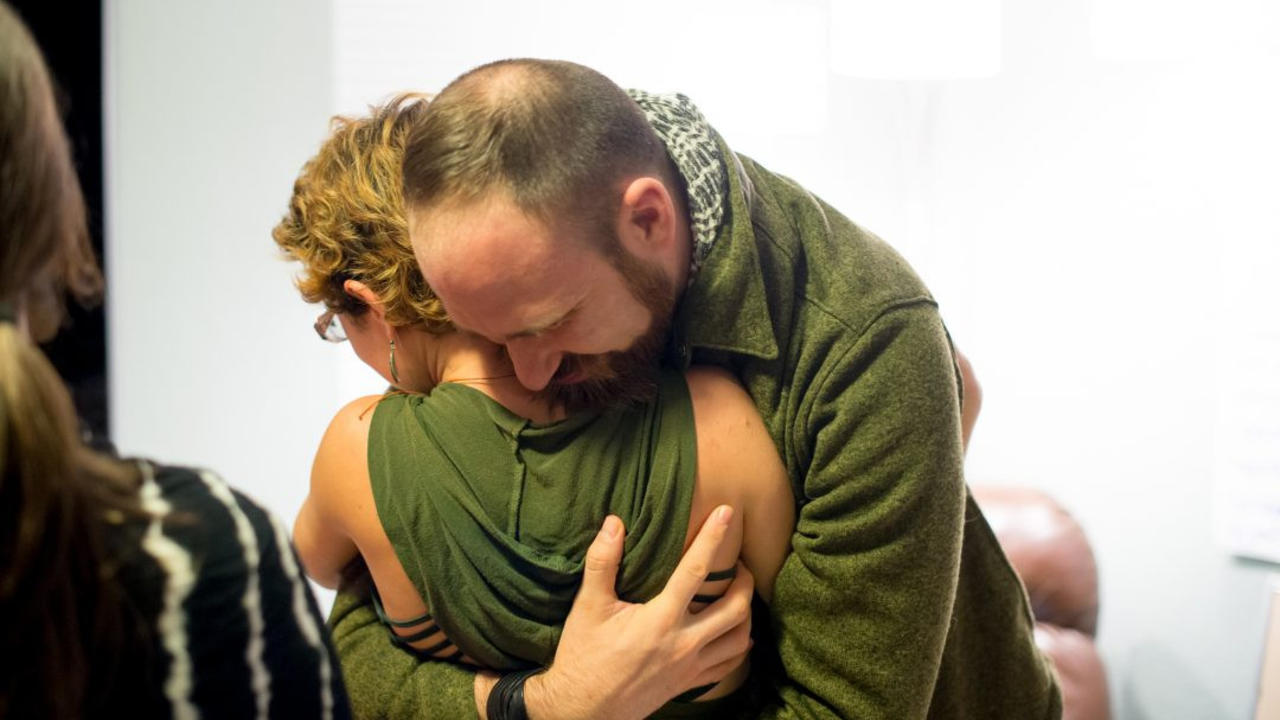A Pew for Elijah: What a Funeral Taught Me About Facilitation
Apr 05, 2019
by Sara Ness
“You don’t belong here.”
That’s the feeling I got upon walking into the room. I was twenty three years old, and one of my community members had just passed away – a devastating homicide while he was en route to Baton Rouge to facilitate that community’s first Authentic Relating Games Night. I led the Authentic Relating community in Austin. His mother, who I barely knew, had asked me to facilitate the memorial.
Of course I said yes, and I flew down a few days later. It wasn’t until we were in the car en route to the memorial service that worry started to percolate through my shock. After all, I had never facilitated a memorial before; I had never even been to one. I asked the mom, “How do you want me to facilitate this service?” “Just get up there. You’ll be fine,” she reassured me.
I walked into the room and within a second, I knew that I was in trouble. I am a facilitator of group emotional practices. I get rooms full of willing people sitting around in a circle to connect with each other. I was a twenty-something Jewish emotional educator and I had just walked into a group of at least fifty devout Christians, sitting in rows, expecting a pastor.
This experience taught me a lot about facilitation.
First, it taught me that one can get through anything if there’s no other choice. I bumbled my way through a twenty-second sermon mostly consisting of a Rumi quote I’d looked up five minutes beforehand, and devoid of the one connection exercise I’d planned to do to help remember and recognize the departed. It was obvious this wasn’t the crowd.
His mom, sitting in the front row, called not-so-subtle prompts to me: “Invite people up to share memories!” “Ask again!” The crowd was unwilling to get up and speak. Somehow, we made it through thirty minutes of painfully-pulled remembrances, while pictures of the dearly departed flashed behind me on a screen. Then I closed the ceremony. I stepped down from the podium, frozen and shaking. I knew nobody there; I had barely known the deceased. A few people stepped up to me as I wove my way through the crowd to the safety of not-here. “I appreciated your sermon!” I was thankful to survive.
The main lesson I took from that experience is the power of context. Within my own community, I have three things I didn’t have in Baton Rouge: status, knowledge, and control.
I have the respect of those around me, which gives me high status, which has me feel safe and incentivizes others to trust and follow me.
I have knowledge of the community: connection to most of the members, understanding of why people come to events, and awareness of the norms and common practices.
I have control over my situation: I get to define how the room was laid out, where the facilitators sit, what exercises we do, and what gets communicated to attendees ahead of time to frame their expectations.
These days, I train facilitators to work with groups of all kinds. I hear this question again and again in the trainings:
“How do I use these practices with new groups, resistant groups, groups with (x) culture, groups I don’t know?”
In other words, how can a young Jew who has never been to a memorial deliver a powerful experience to a group of people who deserve to mourn together for someone they loved?
I don’t claim to have the answers. However, over the past six and a half years, I’ve worked with hundreds of groups of different kinds using practices that require trust in order to succeed. I’ve had to explore ways of gaining that trust, quickly, from management teams and schoolteachers and ad hoc leadership communities. I’ve discovered a few things along the way.
Lorem ipsum dolor sit amet, consectetur adipiscing elit. Cras sed sapien quam. Sed dapibus est id enim facilisis, at posuere turpis adipiscing. Quisque sit amet dui dui.
Stay connected with news and updates!
Join our mailing list to receive the latest news and updates from our team.
Don't worry, your information will not be shared.
We hate SPAM. We will never sell your information, for any reason.

